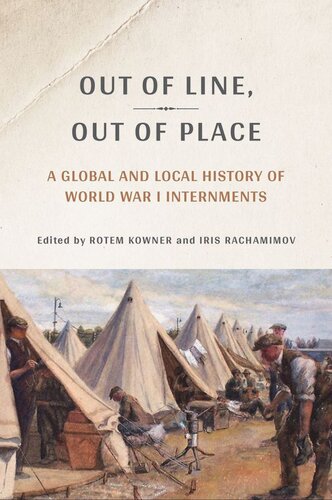

Most ebook files are in PDF format, so you can easily read them using various software such as Foxit Reader or directly on the Google Chrome browser.
Some ebook files are released by publishers in other formats such as .awz, .mobi, .epub, .fb2, etc. You may need to install specific software to read these formats on mobile/PC, such as Calibre.
Please read the tutorial at this link: https://ebookbell.com/faq
We offer FREE conversion to the popular formats you request; however, this may take some time. Therefore, right after payment, please email us, and we will try to provide the service as quickly as possible.
For some exceptional file formats or broken links (if any), please refrain from opening any disputes. Instead, email us first, and we will try to assist within a maximum of 6 hours.
EbookBell Team

4.8
74 reviewsWith expert scholars and great sensitivity, Out of Line, Out of Place provides illumination and analysis on how the proliferation of internment camps emerged as a biopolitical tool of governance. Although the internment camp developed as a technology of containment, control, and punishment in the latter part of the nineteenth century mainly in colonial settings, it truly became universal and global during the Great War.
Mass internment has long been recognized as a defining experience of World War II but was a fundamental experience of World War I as well. Over eight million soldiers became POWs, more than a million civilians became internees, and several millions more were displaced from their homes, with many placed in securitized refugee camps. For the first time, Out of Line, Out of Place brings these different camps in conversation together. Rotem Kowner and Iris Rachamimov emphasize that although there were differences among camps and varied logic of internment in individual countries, there were also striking similarities in how camps operated during the Great War.